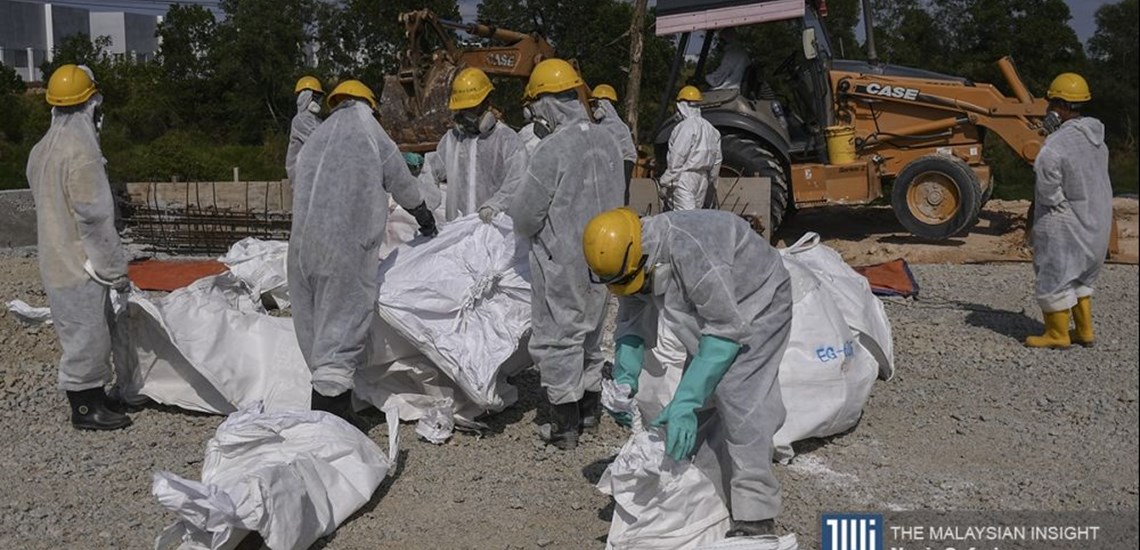Some of the chemicals in the suspected pyrolysis waste dumped into Sg Kim Kim in Pasir Gudang are carcinogenic, while others can cause respiratory problems and skin irritation, said experts.
Government Hazmat Team Recovers Chemicals that are Source of Pollution in Pasir Gudang
Energy, Science, Technology, Environment and Climate Change Minister Yeo Bee Yin identified the chemical compounds as methane, hydrogen chloride, acrylonitrile, acrolein, benzene, toluene, xylene and limonene. A professor specialising in chemical engineering said except for methane, the other compounds are toxic.
“Except for methane, which can cause narcotic effects when inhaled, the rest are toxic. Hydrogen chloride and acrolein, especially, are corrosive to the respiratory tract and can cause organ damage,” the professor told The Malaysian Insight on condition of anonymity.
“Toluene, benzene and acrylonitrile are carcinogenic and can damage organs with prolonged exposure. It should be noted that acrolein is a compound that can cause fatality from exposure to levels as low as 10ppm (parts per million), while the lethal concentration of acrylonitrile via inhalation is 2.09ppm per four hours.”
More than 1,000 people have fallen ill after inhaling toxic fumes from the dumped chemical waste since March 7. Twelve people have been admitted to the intensive care unit at the latest count. All 111 schools in Pasir Gudang have been closed until further notice.
It was reported that tonnes of chemicals were dumped into the river by illegal factory operators, with the Johor Health, Environment and Agriculture Committee chairman saying 2.43 tonnes were collected on the same day the dumping was reported.
According to Environment Department data, 15 factory operators were charged with offences under Section 34B of the Environmental Quality Act 1974 between 2013 and last year. Section 34B stipulates prohibitions against placing and depositing scheduled wastes.
On Tuesday, Yeo said one of the three suspects in the Sg Kim Kim case would be charged under Section 34B of the act, which carries a maximum jail term of five years and a RM500,000 fine.
Source: The Malaysian Insight




















